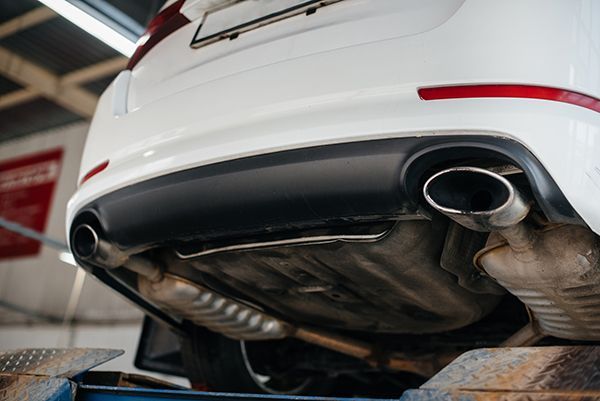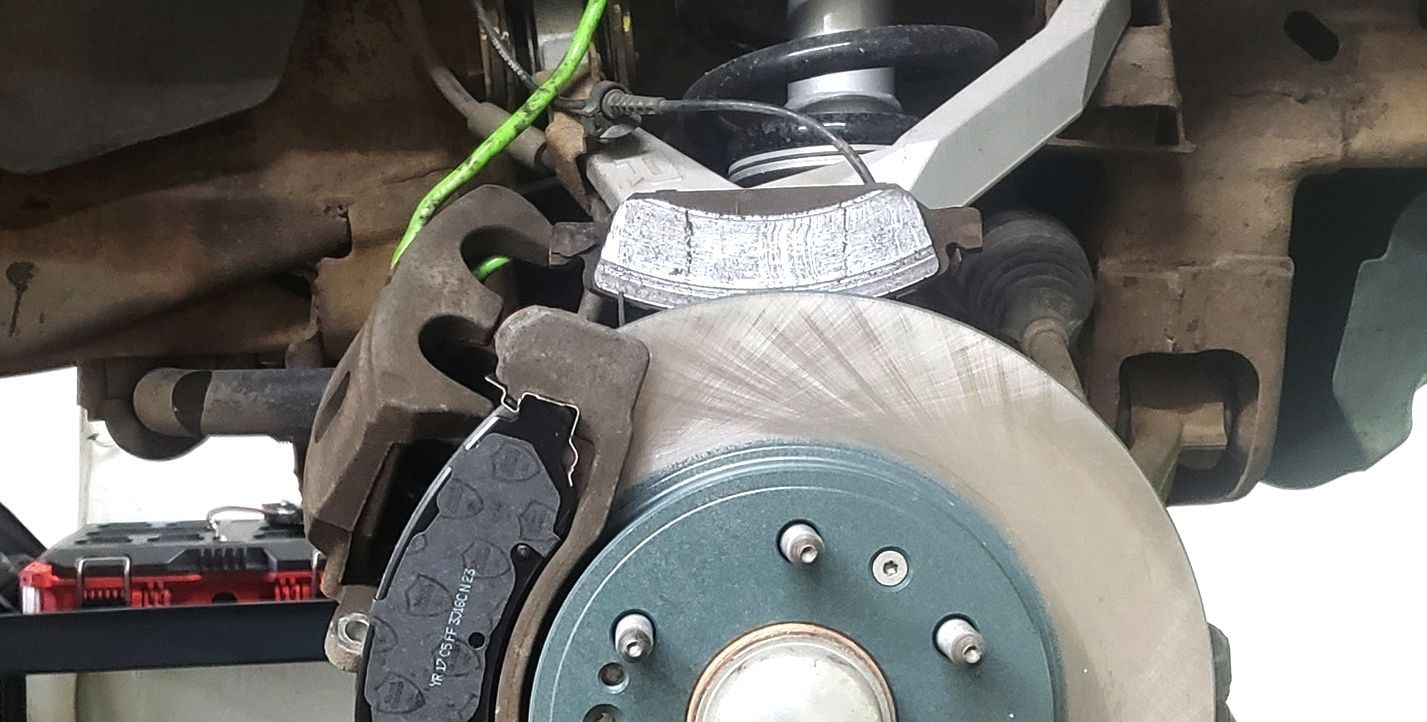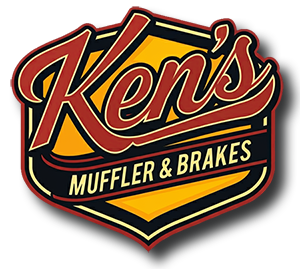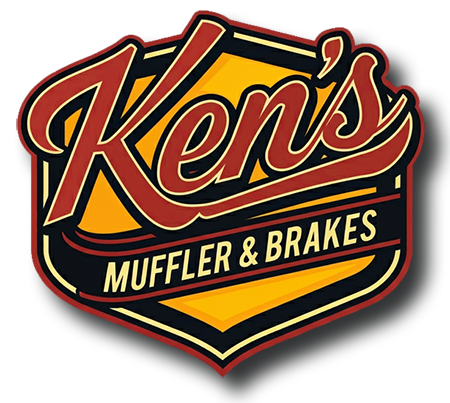What is a Car Muffler, and When is it Time for Repair?

The muffler is a small but crucial part of your car’s exhaust system, working hard behind the scenes to keep your ride quiet, efficient, and environmentally friendly. Knowing how your muffler works and recognizing when it needs repair can help you avoid bigger problems down the road. At Ken’s Muffler & Brakes, we specialize in muffler services in Dallas. If you encounter any issues with your exhaust system, we’re here to help.
What is a Muffler and What Does It Do?
A car’s muffler is part of the exhaust system, primarily responsible for reducing engine noise. Inside, it contains a series of chambers and tubes that dampen and redirect sound waves produced by the engine. By the time these sound waves leave your exhaust pipe, they are much quieter, making your car more pleasant to drive and reducing noise pollution.
But a muffler does more than quiet down your vehicle. It also plays a role in improving engine efficiency and controlling emissions. By managing exhaust flow, a well-functioning muffler can support better engine performance and reduce the pollutants your vehicle emits. When your muffler is in good shape, it helps keep your vehicle running smoothly and quietly while ensuring compliance with emissions standards.
Signs Your Muffler May Need Repair
Mufflers are designed to be durable, but they are exposed to constant wear from road conditions, moisture, and heat. Over time, mufflers can develop issues that require repair or replacement. Here are some signs that it might be time to bring your car to the shop for muffler inspection and repair:
Loud Noises
One of the clearest signs of a muffler problem is an increase in engine noise. If your car sounds louder than usual or you hear rumbling, roaring, or hissing noises, your muffler may have a hole, crack, or other damage. These sounds can also indicate other issues in the exhaust system, so it’s best to have a professional mechanic diagnose the problem.
Unusual Smells
If you smell exhaust fumes inside your vehicle, this could indicate a muffler leak. A leak can allow harmful gases, like carbon monoxide, to enter the cabin, which is dangerous. If you notice a strong exhaust smell, especially when the windows are closed, it’s essential to have your muffler and exhaust system checked immediately.
Decreased Fuel Efficiency
A damaged muffler can impact exhaust flow, which in turn may reduce fuel efficiency. If you find that you’re filling up more often than usual, a faulty muffler could be the culprit. Restoring proper exhaust flow with a muffler repair can help you get better mileage and reduce fuel costs.
Visible Rust or Damage
If you can see rust, cracks, or other signs of wear on your muffler, it’s time for an inspection. Rust can weaken the muffler’s structure, making it prone to holes and further deterioration. Physical damage is often a sign that the muffler won’t last much longer, so addressing it early can prevent more costly repairs later.
Misalignment or Loose Parts
Over time, your muffler’s mounts or brackets may wear out or become loose, causing the muffler to hang lower or rattle. If you hear rattling sounds when driving over bumps or see your muffler hanging lower than it should, it’s a good idea to have it inspected. A loose muffler can create exhaust leaks or lead to additional damage if not secured properly.
Exhaust & Muffler Repair in Dallas
Ignoring muffler issues can lead to larger exhaust system problems and even impact your vehicle’s performance and safety. If you’re noticing any of the signs above, don’t hesitate to schedule an inspection. At Ken’s Muffler & Brakes, our expert technicians can diagnose muffler issues and provide high-quality repairs to keep your car running quietly, efficiently, and safely. For professional muffler repair in Dallas, give us a call at 214-308-2320 or stop by our shop. Our team is here to help keep your car healthy.





